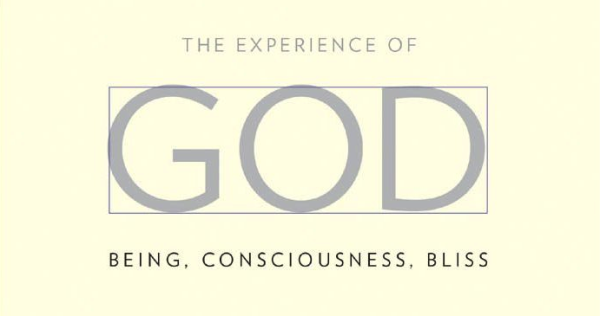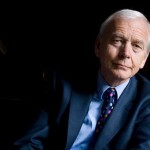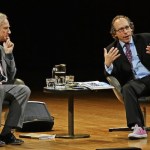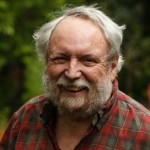What God Is and Isn’t
by Bishop Robert Barron
Filed under God's Nature
The most signal contribution of David Bentley Hart's new book, The Experience of God: Being, Consciousness, and Bliss (Yale University Press, 2013), is to clarify that serious theists and atheists, though they debate frequently concerning the reality of God, are hardly ever using the word "God" in the same way. This fundamental equivocation contributes massively to the pointlessness and meanness of many of these discussions.
It is not so much that Christopher Hitchens and Richard Dawkins disagree with Thomas Aquinas on the existence of God; it is that neither Hitchens nor Dawkins display any real grasp of what Aquinas even means when he speaks of God.
To a person, the new atheists hold that God is some being in the world, the maximum instance, if you want, of the category of "being." But this is precisely what Aquinas and serious thinkers in all of the great theistic traditions hold that God is not. Thomas explicitly states that God is not in any genus, including that most generic genus of all, namely being. He is not one thing or individual—however supreme—among many. Rather, God is, in Aquinas's pithy Latin phrase, esse ipsum subsistens, the sheer act of being itself.
It might be helpful here to distinguish God from the gods. For the ancient Greeks and Romans, for example, the gods were exalted, immortal, and especially powerful versions of ordinary human beings. They were, if you will, quantitatively but not qualitatively different from regular people. They were impressive denizens of the natural world, but they were not, strictly speaking, supernatural. But God is not a supreme item within the universe or alongside of it; rather, God is the sheer ocean of being from whose fullness the universe in its entirety exists.
It is absolutely right to say that the advance of the modern physical sciences has eliminated the gods. Having explored the depths of the oceans and the tops of the mountains and even the skies that surround the planet, we have not encountered any of these supreme beings. Furthermore, the myriad natural causes, uncovered by physics, chemistry, biology, etc. are more than sufficient to explain any of the phenomena within the natural realm. But the physical sciences, no matter how advanced they might become, can never eliminate God, for God is not a being within the natural order. Instead, he is the reason why there is that nexus of conditioned causes that we call nature—at all.
The Russian cosmonaut from the 1950's who, having pierced the heavens, confidently asserted, "I have found no God," was speaking so much nonsense, though he would have been right had he changed the "G" from upper case to lower. This is why the New Atheists and their many disciples are committing a category mistake when they confidently assert that scientific advances cause religion to retreat onto ever-shrinking intellectual turf or when they stridently challenge religious people to produce "evidence" for God.
So how do we get at the true God? Hart clarifies that real religion begins with a particular type of wonder, namely, the puzzle that things should be at all. We are surrounded on all sides by things that exist but that don't have to exist. The computer on which I am typing these words indeed exists, but its existence is not self-explanatory, for it depends on a whole range of causes, both extrinsic and intrinsic. It exists only because an army of manufacturers, designers, technicians, etc. put it together and only because its molecular, atomic, and sub-atomic structure sustains it. Furthermore, it is situated in an environment that conditions it in numberless ways. The technical philosophical term for this caused and conditioned existence is "contingency."
Now a moment's meditation reveals that all of the conditioning elements that I mentioned are themselves, in similar ways, contingent. They don't explain their existence any more than the computer does. Therefore, unless we permanently postpone the explanation, we have to come, by logical deduction, to some reality which is not contingent and whose very nature is to exist. This power of Being itself, which explains and determines all the contingent things or our ordinary experience, is what serious theists of all of the great religious traditions mean by the word "God." I fully realize, of course, that the vast majority of religious believers wouldn't say that their faith in God is a function of this sort of philosophical demonstration. Nevertheless, they are intuiting what the argument makes explicit.
When I engage the critics of religion who take pride in the rigor of their rationalism, I often tell them that, though they are willing to ask and answer all sorts of questions about reality, they become radically uncurious, irrational even, just when the most interesting question of all is posed: why is there something rather than nothing? Why should the universe exist at all?
David Bentley Hart's book helps us to see that the question of God—the true God—remains the most beguiling of all.
Related Posts
Note: Our goal is to cultivate serious and respectful dialogue. While it's OK to disagree—even encouraged!—any snarky, offensive, or off-topic comments will be deleted. Before commenting please read the Commenting Rules and Tips. If you're having trouble commenting, read the Commenting Instructions.













